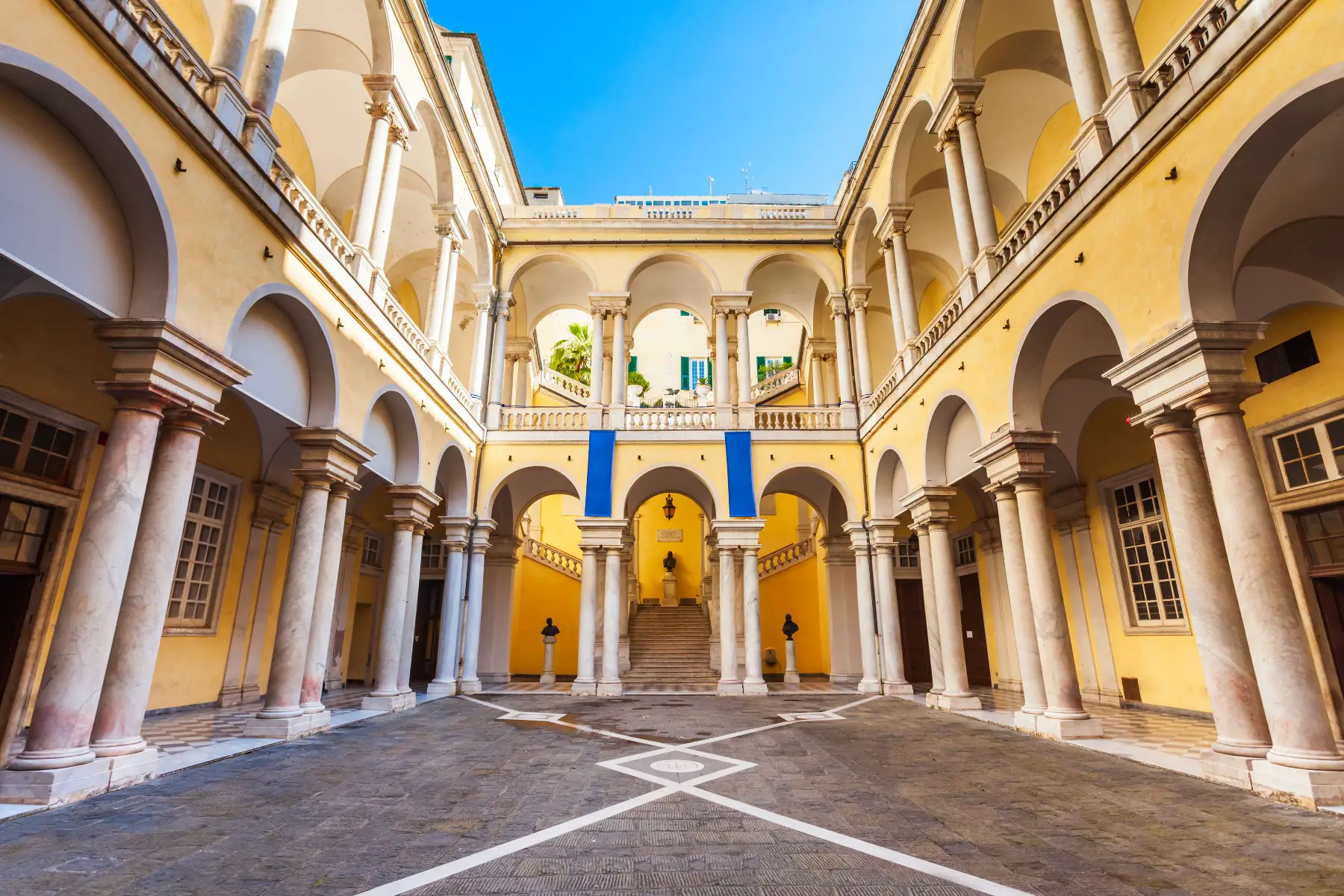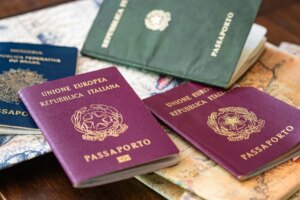From investor and startup visas to business and research visas, there are many possibilities for internationals to set up shop in Italy. However, as with most European Union (EU) member states, you might need a visa or residence permit before moving to the country for a longer period of time.
Learn all there is to know about work visas in Italy, including the requirements and how to apply, by reading the following sections:
Moving2Italy
When relocating to Italy, get expert help from Moving2Italy on taxes, work permits, and setting up a business. They also provide personalized support for immigration, social security, and residence, helping you navigate your new life abroad. For assistance with fiscal and immigration matters, contact Moving2Italy.
Working in Italy
Business is booming in Italy, with tourism, fashion, vehicle manufacturing, and pharmaceuticals among its biggest industries.
The country presents an attractive workplace for internationals lured to its shores by the rich cultural history, warm climate, world-famous cuisine, and cosmopolitan cities such as Rome (Roma) and Milan (Milano).
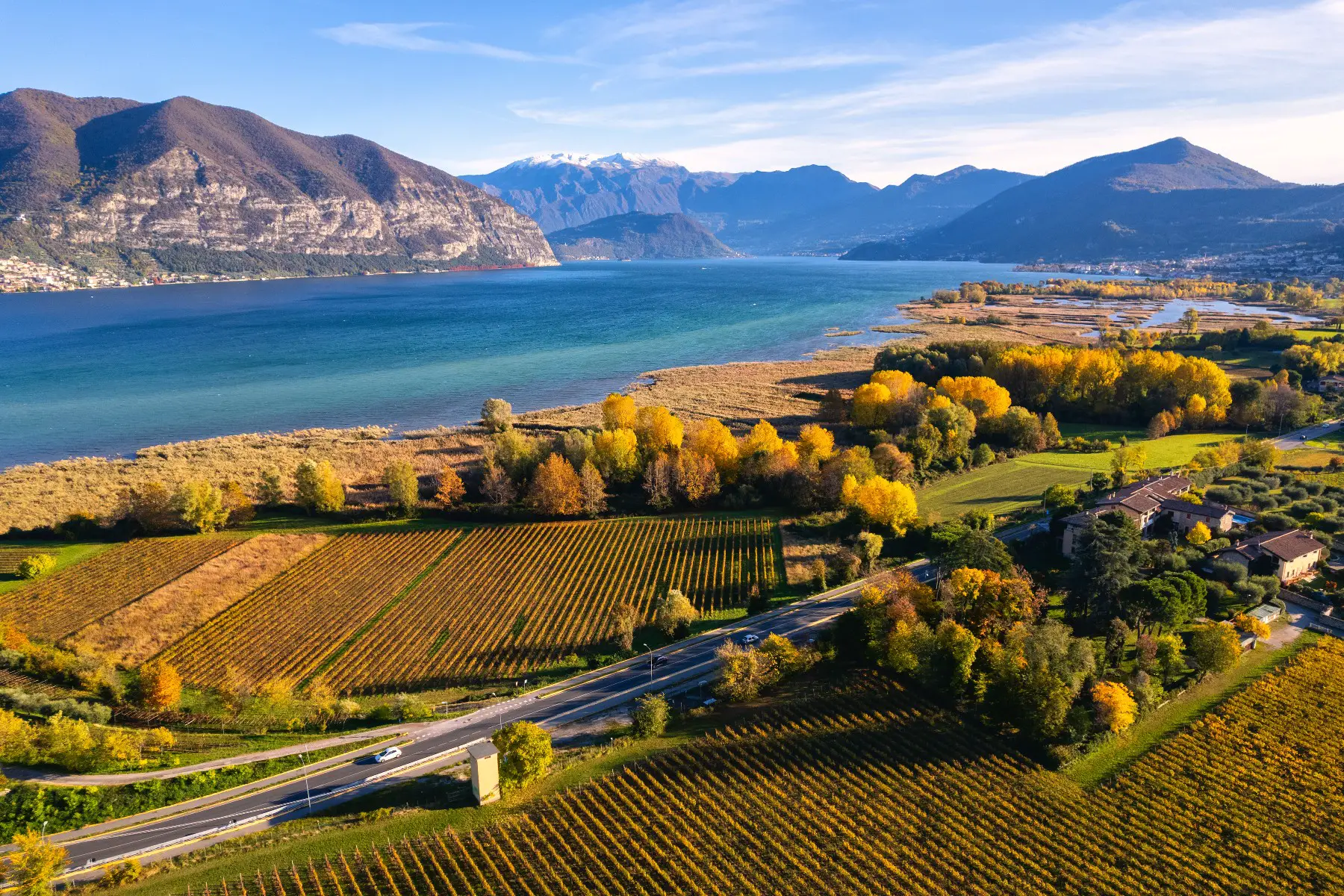
Italy’s economy offers reasonable living costs, good universities, and a decent work-life balance. The average net-adjusted disposable income is $29,431 a year, and in 2022, there was a projected unemployment rate of 8.8%.
Similar to other countries in the EU and European Free Trade Association (EFTA – Iceland, Liechtenstein, Norway, and Switzerland), Italy has a two-tier immigration system. This means citizens from within those regions can come and work without restriction. Foreign nationals from outside that area (i.e., third countries) usually need a visa and residence permit.
In 2022, there were over 5 million expats in Italy. This represented 8.8% of the overall population and around 10% of the country’s workforce.
The Italian Ministry of the Interior (Ministero dell’ Interno) is responsible for all visas and permits, including work visas.
Who needs a work visa for Italy?
EU/EFTA nationals
Citizens from the EU/EFTA region don’t require a visa or residence permit (permesso di soggiorno) to work or live in Italy. If staying for more than three months, they only need to enter the civil registry (anagrafica) with the local municipality (comune) .
Other requirements include:
- Valid passport or ID
- Sufficient income (to not depend on social security)
- Adequate health insurance
Non-EU/EFTA citizens
In general, third-country nationals from outside the EU/EFTA area need a visa and residence permit to come to Italy. That said, there are some exceptions.
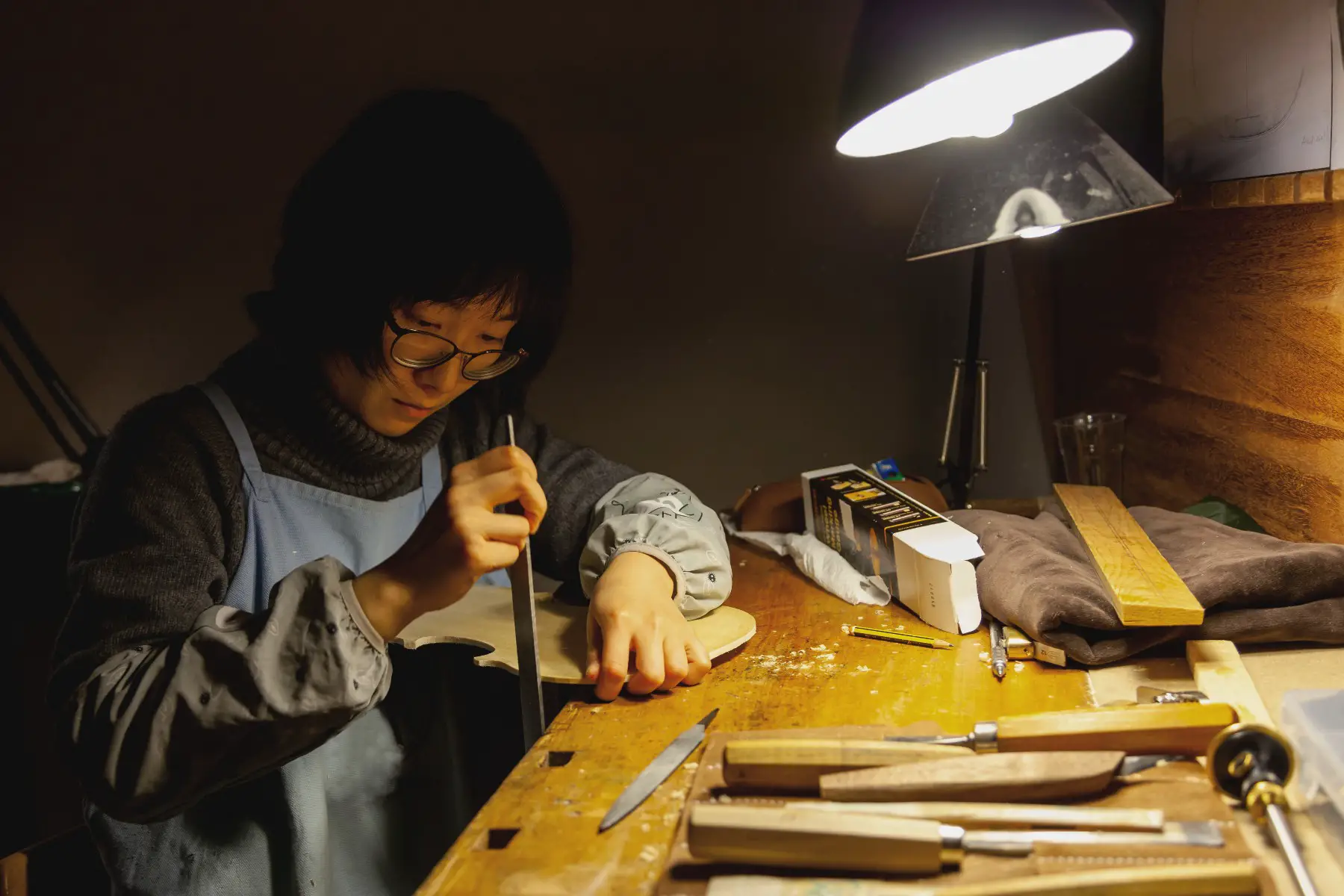
Citizens from just over 60 countries – including Australia, Brazil, Canada, Japan, the UK, Ukraine, and the US – can travel to Italy without a visa for a maximum of 90 days. If you extend your stay, you must apply for a work visa and residence permit.
You can check the exact requirements on the government visa portal.
UK nationals since Brexit
Following Brexit, United Kingdom (UK) nationals have become third-country nationals. That means that from 1 January 2021 onwards, they too are subject to immigration controls in Italy and other member states.
The UK is among the list of over 60 exceptions that can enter the country without a visa for up to 90 days. However, if you want to relocate to Italy for long-term work purposes, you will need a visa and residence permit.
If you have been living in Italy before 1 January 2021, you can benefit from the Brexit Withdrawal Agreement. This gives you broadly the same rights as EU/EFTA residents, meaning you do not need a visa to work there.
You can find more information on the UK government website.
Types of Italian work visas
The length of your stay in Italy determines the type of visa. You can either apply for a:
- Short-stay visa: also known as a Schengen type C visa, for visits that last up to 90 days within any 180-day period
- Long-stay visa: also known as a Schengen type D visa, for stays that last longer than 90 days (i.e., three months)
Depending on the type of job, you can apply for the following short-stay work visas:
- Business visa
- Research visa
- Salaried-employment visa
- Salaried-employment – Entertainment field (artists)
- Salaried-employment – Sports activities
- Self-employment visa
- Self-employment – Entertainment field (artists)
- Sports competition visa
- Transport visa

There are also several long-stay work visas available, including:
- EU Blue card
- Investor visa
- Research visa
- Salaried-employment visa
- Salaried-employment – Entertainment field (artists)
- Salaried-employment – Maritime
- Salaried-employment – Sports activities
- Seasonal work visa
- Self-employment visa
- Startup visa
- Voluntary work visa (European Voluntary Service)
- Voluntary work visa (national quotas)
- Working holiday visa
Short-stay work visas in Italy
Business visa
The business visa covers the following:
- All business meetings
- Seminars
- Recruitment trips
- Training
- Short-term work postings of both salaried employees and self-employed freelancers
Required documents for the application include:
- A cover letter
- A letter from your organization demonstrating their status as financial-commercial operators
- A letter of invitation from a registered Italian company or organization, as well as their business license (Visura Camerale)
- Proof of sponsorship and/or accommodation, along with the host’s ID if it is signed
- Proof of income during the last three months (e.g., a personal bank statement)
Research visa
Third-country nationals who travel to Italy to conduct scientific research can apply for a research visa.

To qualify, you must provide a short-stay hosting agreement (convenzione di accoglienza) from an Italian-accredited University or Research Institute. This document needs to specify your program activity, salary, and insurance.
Salaried-employment visas
If you travel to Italy for a job with an employer, you can apply for a salaried-employment visa. Subcategories of this visa are available for those in entertainment (artists) or sports (athletes). If you are in Italy to compete, you can apply for a sports competition visa.
Documents required for this visa include:
- Your employee contract (contratto di soggiorno per lavoro)
- An entry clearance (nulla osta) issued by either:
- The Unique Immigration Desk (Sportello Unico per l’immigrazione – SUI)
- The National Agency for Active Labor Policies (Agenzia Nazionale Politiche Attive Lavoro – ANPAL)
- The Italian National Olympic Committee (Comitato Olimpico Nazionale Italiano – CONI)
Self-employment visas
Freelancers whose work benefits the Italian economy must apply for a self-employment visa. A subcategory visa is available for those in the entertainment industry (artists).
Requirements include:
- Your profession must be listed by the Italian government
- Approval from the ANPAL and the local Chamber of Commerce (Unioncamere)
- Proof of income earned during the preceding fiscal year in your home country
- Entry clearance from the Italian Police headquarters (Questura), issued within the previous 90 days
Sports competition visa
The sports competition visa is given to professional athletes competing in a game. For the application, you must provide an invitation letter from either:
- CONI
- The relevant Italian Sports Federation
- The organizers of the sporting event
Transport visa
If your transport of people or goods is not mentioned under the 1944 Chicago Convention, you can apply for a transport visa.
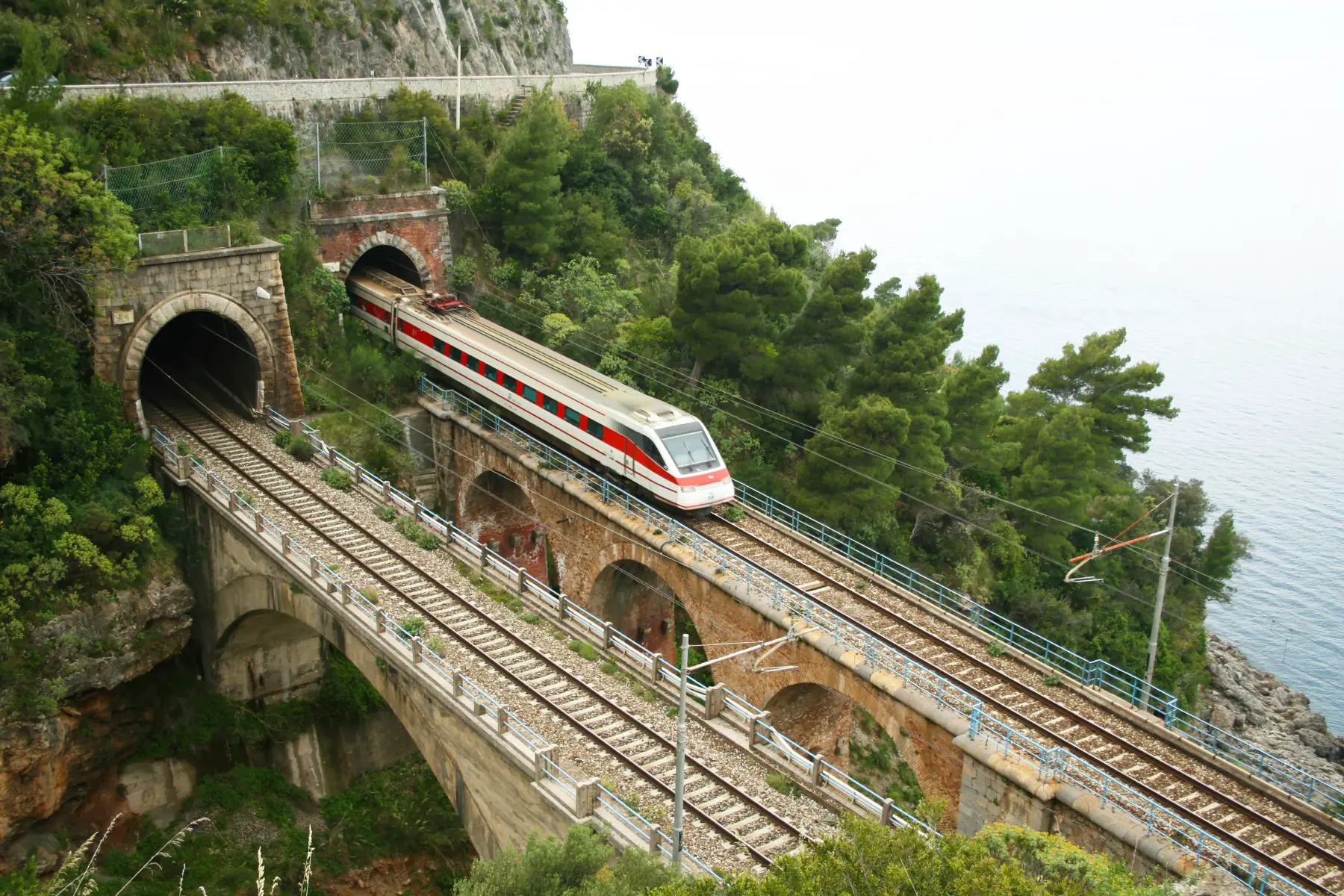
Required documents include:
- Proof of employment (e.g., your aircrew member ID)
- Evidence of the purpose of your visit
Italian long-stay work visas
EU Blue Card
The EU Blue Card is a combination of a work visa and a residence permit. It is available to high-skilled salaried employees (i.e., not to freelancers) and their families. If you have an EU Blue Card from another EU member state, you do not need an entry visa to move to Italy.
To qualify for an Italian EU Blue Card, you must:
- Have gained higher professional qualifications through at least:
- Three years of higher education (or 180 credits in total)
- Five years of relevant work experience
- Have a work contract for at least one year
- Have an income of at least 1.2 times the national average
- Meet the legal requirements for regulated professions
- Meet other general conditions for entering the country
The visa is valid for two years when you have an open-ended contract, and three months past the end date of fixed-term contracts. You can renew the EU Blue Card for up to five years.
Investor visa or Golden Visa
Also known as the Golden Visa, the investor visa is available to individuals willing to donate at least €500,000 to Italian businesses or the Italian economy (or at least €250,000 to a startup). The visa is valid for two years and renewable for up to five years.
It’s worth noting that Italy has suspended its golden visa program for Russian and Belarusian citizens.
Research visa
Third-country nationals who conduct scientific research at an Italian educational or professional institution can apply for a research visa.

This visa is valid for the duration of your position.
Salaried-employment visa
If you are traveling to Italy for long-term work with an employer, you can apply for a salaried-employment visa. There are four subcategories of this visa:
- Salaried-employment visa
- Salaried-employment – Entertainment field (artists)
- Salaried-employment – Maritime
- Salaried-employment – Sports activities
These visas are usually valid for two years but renewable for up to five years.
The main requirement is having a job offer or employment contract. Your (future) employer must apply for entry clearance for work purposes (nulla osta al lavoro) from the SUI. It should be issued within 40 days but it often takes longer. After that, you have six months to apply for a visa.
Seasonal work visa
The Italian government allows seasonal workers to come to Italy for agricultural or seasonal work. They announce the number of available positions in the quota decree (decreto flussi) annually.
After that, Italian employers will apply for a seasonal work visa on their employees’ behalf. The visa will be valid between six months and two years and is non-renewable.
Self-employment visa
Freelancers can travel to Italy on a self-employment visa. Your job must benefit the Italian economy, for example, if you want to start a business or are a business owner looking to expand to Italy.
This visa is valid for up to two years but renewable for up to five years.
Startup visa
Anyone with an innovative startup idea and €50,000 in funding can start a business with the Italy Startup visa. EU citizens can apply from abroad, but non-EU/EFTA nationals must submit their application from within the Italian borders.

Required documents include:
- Completed application form
- Presentation deck
- Business plan
- Cover letter
You’ll initially get a one-year self-employment visa. Depending on your business growth, you can get a new self-employment visa valid for two years.
Voluntary work visa
Volunteers for an EU program can apply for a voluntary work visa (European Voluntary Service). If your volunteer role is with a program that benefits Italy, you can apply for a voluntary work visa (national quotas).
Both visas are valid for up to a year.
Working holiday visa
If you are between 18 and 30 and want to travel and work throughout Italy, you can apply for a working holiday visa. This Youth Exchange program is available to certain nationalities only. It allows you to travel for three months and work for nine months.
The visa is valid for one year and is non-renewable.
The Italian visa application process
Short-stay visa requirements
Required documents for short-stay work visas include:
- Valid passport or ID that expires at least three months beyond your departure date
- Completed short-stay visa application form
- Proof of accommodation (e.g., hotel reservation)
- Proof of a booked return flight
- Any other relevant documents related to your visit
Long-stay visa requirements
The long-stay visa requires you to provide:
- A valid passport or ID
- Completed long-stay visa application form (in Italian)
- Any other relevant documents related to your stay

For EU Blue Card applications, you also need a job offer that requires you to have professional qualifications listed as level 1–3 in the ISTAT occupation classifications.
After arriving in Italy, you have eight days to apply for a residence permit. These are mandatory for non-EU/EFTA citizens. Depending on your visa type, you can get a residence permit from:
- The SUI in every provincial prefecture (prefettura)
- Selected municipalities
- Selected patronage institutes (patronati)
- Selected post offices (uffici postale)
- Local police headquarters (questure)
How to apply
You can apply for this work visa for Italy at any of the following:
- Italian embassy or consulate in your home country
- Any worldwide visa application center to which Italy has outsourced applications
- Embassy/consulate of another Schengen Area country
During the application, you must provide:
- One passport-size photo
- Proof of health insurance to cover any period before you register for public healthcare
- Proof of sufficient income (e.g., bank statements)
- Any other necessary documentation
Applications are typically processed within 15 days but can take up to 60 days. It is, therefore, important to apply in advance.
Visa costs
The standard cost of a short-stay work visa is €80. Citizens from Armenia, Azerbaijan, and Russia pay only €35.

Some groups can get a visa free of charge, including:
- Family members of EU/EEA nationals (European Economic Area – Iceland, Liechtenstein, and Norway)
- Researchers carrying out a scientific study
- Selected holders of diplomatic, official, or service passports traveling for official purposes
- Teachers on a school or study trip
Italian long-stay work visas cost €116.
Work permits in Italy
To get a work permit, your employer can apply for entry clearance for work purposes at the SUI. They will need to provide:
- Your personal details
- Copy of the employment contract or the terms of employment
- Company/organization details (e.g., name, address, legal status, Chamber of Commerce number)
In theory, it takes up to 40 days to process, but it can often take longer. After it’s been issued, you have six months to apply for your work visa.
Italian work visas for students
Foreign students in Italy don’t need a separate visa to work part-time, as their study visa includes a work permit. However, keep in mind that you are limited to a maximum of 1,040 hours per year (around 20 hours per week).
If you have graduated and are looking for work, your future employer must apply for a work permit.
Work visas for family members in Italy
Foreign nationals with a residence permit for at least one year can invite selected relatives to join them in Italy on a family visa.

Eligible family members include:
- Spouse/registered partner
- Minor children under the age of 18
- Dependent children over the age of 18
- Dependent parents aged over 65
Your relative’s visa is usually valid for the same duration as yours. They must apply for a separate residence permit within eight days of arrival.
Their residence permit also includes the right to work if your employer has notified the SUI during your work permit application. Your family member may also do freelance work after getting the proper authorization from the ANPAL.
Appeals and complaints
If your Italian work visa is denied, you would receive the decision with the reason for the refusal in your native language. Failing that, the letter will at least be in English, French, Spanish, or Arabic. You can then submit additional documents and request your local embassy or consulate to reconsider.
If the decision stays the same, you have 60 days to take the case to the Regional Administrative Court (Tribunali Amministrativi Regionali – TAR). However, this can be expensive as you usually have to pay legal fees.
Useful resources
- Immigration Portal – information on visas and residence permits, including a portal where you can register and manage applications
- Ministry of Foreign Affairs and International Cooperation (Ministero degli affari esteri e della cooperazione internazionale) – Italian government website with information on visas including a visa search portal where you can find out which visa you may need for Italy
- Ministry of the Interior – Italian government ministry responsible for immigration, visas, and residence permits
- State police website (Polizia di Stato) – information on visas and residence permits



